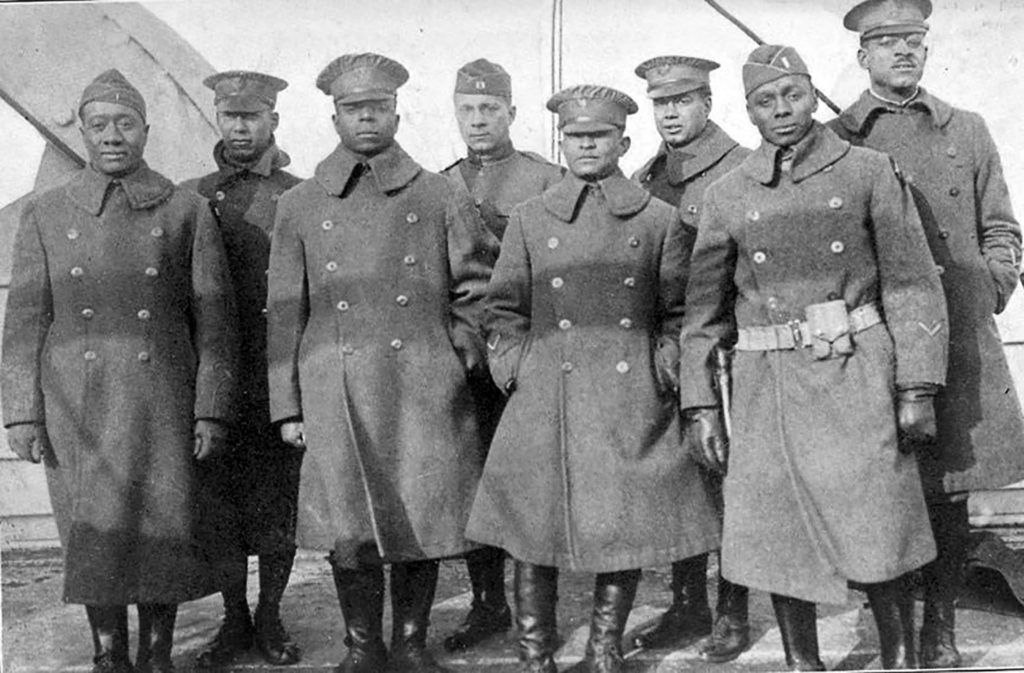Volcanoes are erupting in The Philippines, but on-fire Australia received some welcome rain. The Iran war cries have been called off and The Donald’s military powers are about to be hamstrung by the Senate. Meanwhile, his impeachment trial is starting, and we’re all on Twitter for a front-row seat.
Op-ed: Welcoming “Wokeness” to the Military
A diverse and conscious military is an asset, not a deficiency—especially to its over 500,000 active-duty Black service members.

I come from a proud background of military service. My father enlisted in the Marine Corps at the tail end of Vietnam and became an army officer until after Desert Storm. My grandfather served in the army in Vietnam as well as Korea. Several uncles served in World War II.
I myself have been in the military for 14 years. My first company commander was a strong and tough Black infantry officer in a cavalry unit. Thirteen years later, I now have my second Black commander in the form of a 2-star general.
Thirteen years later.
You would think I would have been under more than two Black commanders as I start closing in on being eligible for retirement at the 20-year mark. Granted, there is a lack of Black officers joining the combat arms community and overflow in support roles. But still, does it make sense that African Americans would make up only about 11% of United States Army officers when nearly a quarter of the force is composed of Black men and women?
Our military reflects our society, and within the army discrimination and racism still flows. A survey conducted by Military Times in 2019 of 1,630 active-duty subscribers found that 36 percent of those polled and 53 percent of minority service members said they had seen examples of white nationalism or ideologically driven racism among their fellow troops. Just last year, where I am stationed in Germany, a confederate flag was flown on an army installation.
Recently, this grim outlook has had some small cracks. Last year’s promotion of Brig. Gen. Anthony Anderson was long overdue, but it was still laudatory, because so many retire at colonel thinking they will never be promoted to the general officer level. Gen. Charles “CQ” Brown became the first Black general to lead a branch of military service in August 2020. And I’ve even seen the first Black Secretary of Defense in my lifetime, Sec. Lloyd J. Austin III.
But I think there are larger reasons why minority service members have a brighter future ahead of them. Why? Because people are waking up, inside the military and out.
Candid conversations
It’s no secret that disparities, hate crimes, and bigotry have been brought to the forefront of the social conversation the past few years. In 2020, two crises sparked national outrage. First, the murder of Vanessa Guillen and the nearly two-year fight that eventually made sexual harassment a crime in the military (and even brought to light several inequalities within major army installations through the eye-opening report of the Fort Hood independent review committee). Second, the killing of George Floyd. It was not just the civilian population that was outraged over these cases. Political sentiments about and personal disgust with the treatment of minorities boiled over in the military. Soldiers like US Army Capt. Alan Kennedy began to peacefully protest while off duty in support of justice for George Floyd, and others showed their support of Black Lives Matter with car decals and signs. This tension reached the hill, and politicians swiftly took advantage, peddling the view that the military was unable to protect our nation due to it becoming too “woke.”
But instead of causing further division, what the negative media attention has actually done is inspire the military to have more focused and expansive conversations, ones that we should have had a long time ago—about gender equality, racism, sexual orientation, equal opportunity, and sexual harassment and reporting requirements, to name a few.
The Army, for example, made us conduct extremism stand-down days, that I personally wrote brief cards, themes, and messages for. We had candid conversations about politics’ role in the military, our right to peacefully protest, and the foundation of why people wanted to protest in the first place, including Black Lives Matter vs. All Lives Matter and what each means to the other. Many soldiers came to an agreement to see each others’ side of the story and respect each others’ vantage point. And while some debates were heated and argumentative, even those ended civilly, with soldiers proverbially shaking hands and agreeing to continue the mission together.
Not everyone, of course, wanted to have these conversations. But for every room with a low participation rate there was one with active participants voicing their feelings. These conversations always happened within the army I know, but never at this magnitude and with such microscopic resolution. We have looked at ourselves, and decided to fix what was obviously broken.
Good stewardship at the highest levels
Contained in the ethic of the US Army is the concept of stewardship, the responsibility of army members to strengthen the military as a profession and to care for the people and other resources entrusted to them by the American people. According to the US Army’s manual, ADRP-1, all true professions police their members and create their own professional development programs to advance their knowledge and practical expertise, which they continuously adapt to future needs. By owning our discrepancies and shortcomings, we are simply being good stewards of our military.
During a strenuous moment in the country, when our nation’s history of inequality was being brought further into the light, we were fortunate that not only army leaders but also the highest-ranking officers in our military modeled this kind of good stewardship. The service chiefs of military branches defended the importance of diversity and inclusion, as well as understanding the tensions within our community. Chief of Naval Operations Adm. Mike Gilday, for instance, stated that he believes strength in diversity to be a scientifically proven fact.
Yet the cornerstone of this defense came from the head of the military and the Chairman Joint Chiefs of Staff Gen. Mark A. Milley when he answered Florida Rep. Matt Gaetz’s question about the military studying critical race theory in a House Armed Services Committee hearing in summer 2021.
“What is wrong with understanding, with having some situational understanding, about the country for which we are here to defend?” said Milley. Knowing the history of slavery and discrimination against African Americans, he continued, “matters . . . to the discipline and cohesion of this military.”
This was a bold move, and with it, Milley set a standard that every service member will take a hard look—even if it’s an uncomfortable one—at what is causing unrest within the country and learn from it. His hard stance in front of our leaders in Washington set the tone for our future, and that gave me hope.
I see the conversations about “wokeness” as having nothing to do with politics, and everything to do with the betterment of the military and the country as a whole. That they have started is actually their most important aspect. This great dialogue throughout America has not been easy, but it has taken hold of us. It is impossible, now, to turn back to silence. We can only face forward, toward a diverse and conscious military where minorities will experience greater inclusion, a larger voice, and most of all an opportunity to lead at the highest echelons. While this process unfolds, I will be waiting, and taking heart: it is a marathon, not a sprint.


